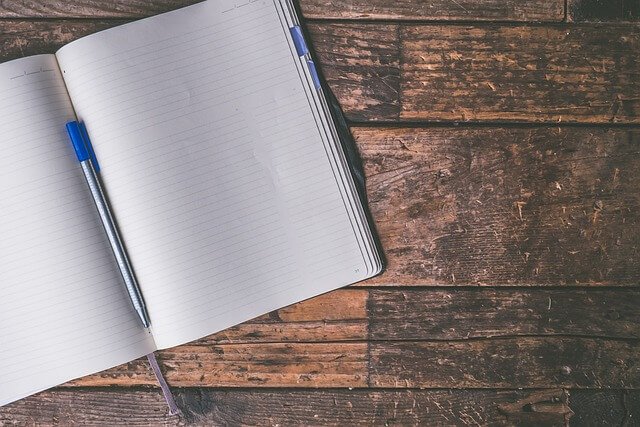Are you tired of feeling like your education is just going through the motions and not actually benefiting you in any meaningful way? Do you want to make sure that every class, lecture, and assignment is helping you become a more knowledgeable and well-rounded individual? Look no further than these seven helpful tricks to making the most of your true education.
From developing effective study habits to seeking out diverse perspectives, this guide will empower you to take control of your learning experience and emerge as a truly enlightened student. So buckle up, grab a notebook, and get ready to unlock the full potential of your mind!
The Purpose of Education
The purpose of education is to prepare individuals for successful careers and citizenship. A well-rounded education helps students develop the skills and knowledge needed to thrive in the workforce and contribute to society. In addition to academic skills, education provides students with social and emotional learning opportunities that are essential for success in life.

The Different Types of Education
Most people think of education as something that happens in a school. But there are many different types of education, and not all of them happen in a classroom. Some types of education happen at home, others in the community, and still others in the workplace. Here are some examples:
Formal education: This is the type of education that most people think of when they think of “school.” It happens in a structured setting, like a school or university, and is usually led by trained educators.
Informal education: This type of education happens outside formal educational institutions. It can include things like learning from parents or other family members, learning from friends or mentors, or learning from experience (like trial and error).
Non-formal education: This type of education is similar to informal education, but it often happens in a more organized way. Examples include after-school programs, community classes, or online courses.
Self-education: This is when someone takes it upon themselves to educate themselves on a particular topic, without the help of formal or informal educators. Self-education can happen through reading books or articles, taking classes, or listening to podcasts.
Pros and Cons of True Education
True education can be a great way to learn about yourself and the world around you. However, there are also some potential drawbacks to true education that you should be aware of before making the decision to participate in this type of learning.

What is the Best Type of Education?
There are many different types of education, each with its own advantages and disadvantages. The best type of education for you will depend on your individual needs and goals. Some people thrive in a traditional classroom setting, while others prefer a more hands-on approach. Here are some things to consider when choosing the best type of education for you:
-Your learning style: Do you learn best by listening to lectures, reading texts, or working on projects? Consider what type of environment will allow you to learn in the most effective way.
-Your goals: What do you hope to achieve by getting an education? If you want to get a job in a specific field, make sure the type of education you choose will give you the skills and knowledge you need.
-Your schedule: Do you have the time and energy to commit to a full-time program, or would a part-time or online option be better for you?
Take some time to think about what would work best for you before making any decisions. Talk to friends and family, teachers and counselors, and anyone else who can offer advice. The most important thing is that you find an educational path that works for you and helps you reach your goals.
How to Get the Most Out of Your Education
There are a lot of helpful tricks to making the most of your true education. It is important to get the most out of your education so that you can be successful in life.
Here are some helpful tips:
1. Make sure that you attend all of your classes. This may seem like an obvious one, but it is very important. If you miss even one class, you may fall behind and have a difficult time catching up.
2. Take good notes and review them regularly. Reviewing your notes will help you to remember what was covered in class and will also allow you to identify any areas where you need further clarification.
3. Get involved in extracurricular activities. Getting involved in activities outside of the classroom can help you to learn more about your interests and can also help you meet new people.
4. Ask questions when you don’t understand something. Asking questions is a great way to ensure that you are understanding the material being taught in class.
5. Study for exams and quizzes well in advance. Cramming for exams is not an effective way to learn the material and will likely lead to a lower grade than if you had studied ahead of time.
6. Take advantage of office hours and tutoring services offered by your school or professors. These resources can be extremely helpful when you are struggling with a particular concept or subject matter

Alternatives to Traditional Education
There are a lot of different ways to get an education these days. You don’t necessarily have to go the traditional route of getting a degree from a college or university. With the rise of technology, there are now many alternative ways to get an education. Here are some helpful tricks to making the most of your true education:
1. Take advantage of online resources: There are a ton of free online resources available that can help you learn about almost any topic you can think of. If you’re interested in learning about a certain subject, do some research and see what kinds of free resources are available. You might be surprised at how much you can learn without spending any money.
2. Use social media to your advantage: Social media platforms like Twitter and Facebook can be great places to connect with others who share your interests. You can also find tons of useful information and resources by following relevant hashtags and joining groups related to your desired field of study.
3. Consider taking MOOCs (massive open online courses): These courses are offered by various colleges and universities and they’re usually free or very low-cost. They’re a great way to learn about new subjects or brush up on skills you might need for your desired career path.
4. Get involved in community organizations or events related to your interests: This is a great way to network and meet people who might be able to help you further your education or career

Conclusion
By following these helpful tricks for making the most of your true education, you can unlock potentials and opportunities that were previously hidden from you. You will be able to develop a more clear understanding of your true purpose in life and learn skills that will help you navigate through any future challenge or obstacle. Take time to reflect on how to make use of these tricks so that they can assist in helping you find success along your journey.
See More: This App Development Software

